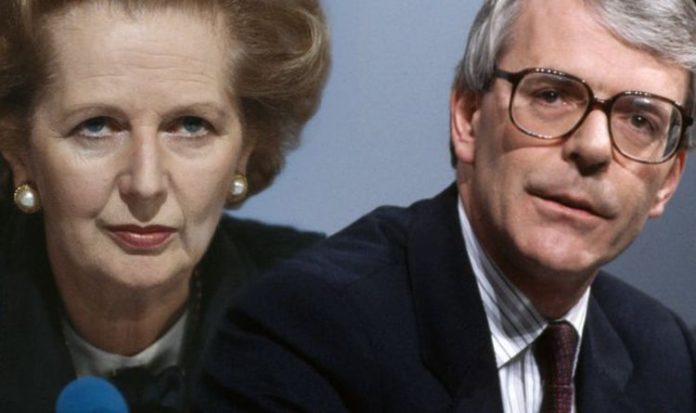Despite having campaigned to stay in the European Economic Community (EEC) – the precursor to the EU –, former Conservative Prime Minister Margaret Thatcher is now often portrayed as a “spiritual mother” of euroscepticism. She passionately fought and won a number of battles against what she saw as the excessive powers of Brussels. In 1984, she negotiated a British rebate on contributions to the EEC in what has long been considered one of the Iron Lady’s finest victories.
Notes disclosed among Cabinet Office files released at the National Archives in Kew, West London, also shed more light on her relationship with her successor, Sir John Major, who famously ratified the Maastricht Treaty once he got into Number 10.
The Treaty is the international agreement that saw what was then the EEC evolve into the EU with initially only 12 member states.
It laid down the groundwork for economic and monetary union with a single currency at its heart and new rules on inflation, debt and interest rate regulations.
Only weeks after she had backed him to take power, records show the Iron Lady warned Sir John that he was in danger of making an “historic error” with his handling of the economy.
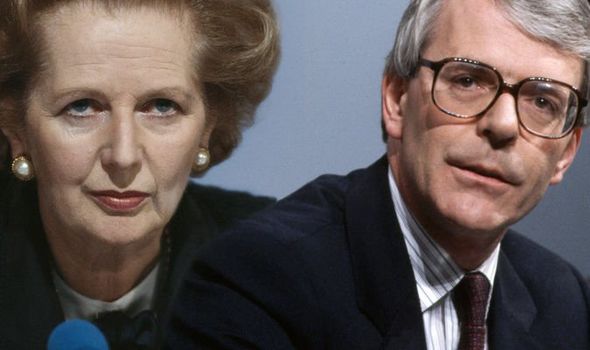
Margaret Thatcher warned John Major of ‘historic error’ over economy (Image: GETTY)
The former Prime Minister said he risked repeating Winston Churchill’s mistake of keeping the level of the pound too high and would drive the country into recession.
The notes reveal just how quickly the views of Mrs Thatcher and Mr Major diverged after he replaced her.
A record of a meeting from early January 1991 reveals a lengthy debate over the economy and the poll tax only around six weeks after she had been forced from Number 10.
She even compared the position to Winston Churchill’s decision as Chancellor in 1925 to return Britain to the gold standard – a move that led to deflation, mass unemployment and the General Strike.
A minute from the January 4 meeting records that “Mrs Thatcher said conditions in the economy were very tough indeed, and she urged early and large cuts in interest rates”.
JUST IN: Merkel’s protégé ‘directly attacks Macron with foreign policy snub’
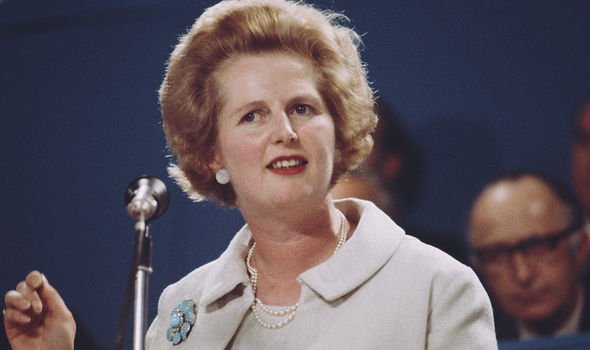
Former Prime Minister Margaret Thatcher (Image: GETTY)
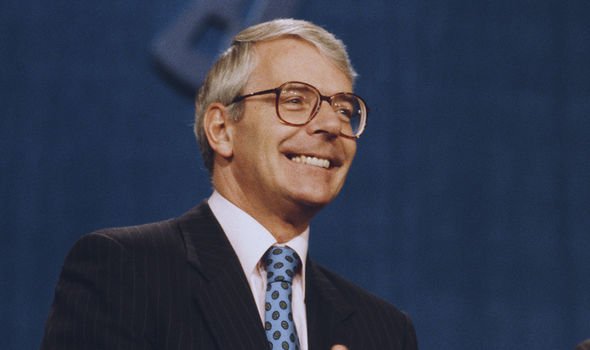
Former Prime Minister John Major (Image: GETTY)
One percent would not be enough, she noted and there was a danger of creating a recession based on high interest rates from targeting exchange rates.
The minute records that she believed “there was a danger of repeating Winston Churchill’s historic error of fixing the parity of the £ at too high a level”.
Mr Major said the current situation “was not remotely comparable”.
Britain faced five successive quarters of recession from the second half of the Nineties, as it dealt with interest rates that touched 15 percent while shadowing the German mark as part of British membership of the Exchange Rate Mechanism or ERM.
Despite her anti-EU stance and disagreements with Sir John, according to Lord David Owen, it was one of Baroness Thatcher’s key decisions that ultimately tied Britain to the EU.
In an interview with Express.co.uk, the former Foreign Secretary and SDP leader argued that the former Prime Minister should have listened to her then-Chancellor Nigel Lawson before signing the Single European Act.
DON’T MISS:
Nicola Sturgeon confessed Scotland’s EU membership ‘may be phased’ [REVEALED]
Boris Johnson said UK ‘could stay in single market for TWO years’ [INSIGHT]
Douglas Hurd turned Britons into EU citizens ‘WITHOUT reading what it [EXCLUSIVE]
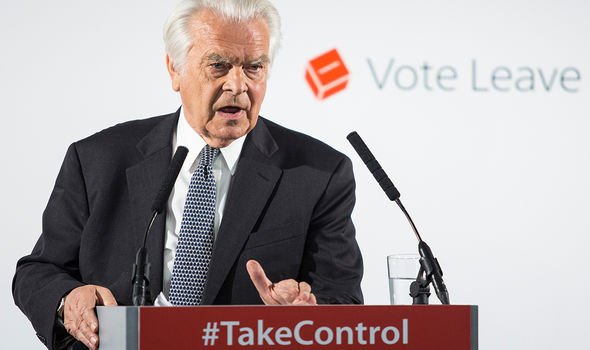
Former Labour Foreign Secretary David Owen (Image: GETTY)
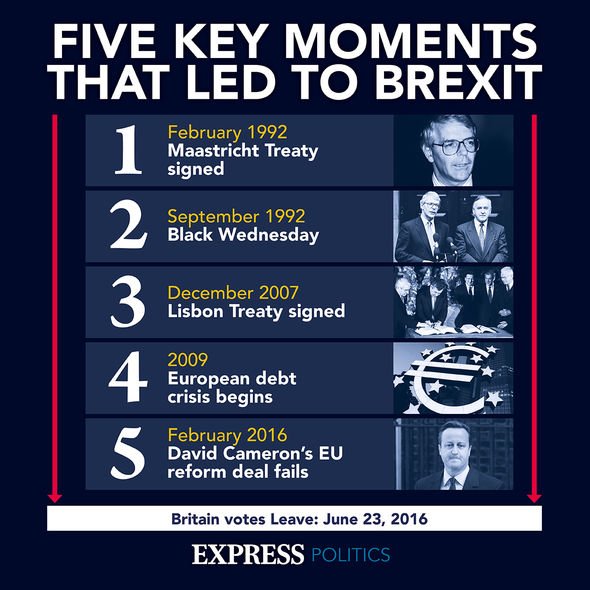
Five key moments that led to Brexit (Image: GETTY)
He explained: “Nigel Lawson is a significant figure.
“He wrote to Margaret Thatcher twice in 1986 warning her not to allow the use of the term ‘monetary’, which was very significant in the Single European Act.
“He deserves great praise for this.
“Thatcher should have said no, and she realised this later.
“We should have said no to the monetary system, because if we had, then we could have easily vetoedMaastricht.”
The Brexiteer noted: “But having gone on and on with that language, it was much harder to block Maastricht.
“Particularly when Kohl was so accommodating giving us the opt outs.”
The Single European Act (SEA) was the first major revision of the 1957 Treaty of Rome.
The Act set the European Community the objective of establishing a single market by December 31, 1992.
It was signed in Luxembourg on February 17, 1986, and at The Hague on February 28, 1986.
The Act set the precedent that, in order to achieve such a market, a genuine Economic and Monetary Union had to be established – a goal which was set out in its preamble.
It conferred on the Community a ‘monetary capacity’, which is to say the possibility of adapting the Community institutions to the subsequent development of an economic and monetary policy.
The future economic monetary union was, therefore, to be established within the Communityframework.
Despite Baroness Thatcher’s mistake, she spent the following years fighting against the Maastricht Treaty-
She believed the Treaty would have “diminished democracy and increased bureaucracy” in Britain.
Referring to the signing of the Single European Act, the Tory grandee said in 1993: “Our trust was not well-founded.
“We got our fingers burnt.
“The most silly thing to do when you get your fingers burnt is to bring forward a bigger and worse Act which is the equivalent of putting your head in the fire.”
Speaking months later in the House of Lords, Baroness Thatcher also claimed: “I could never have signed this treaty.”
